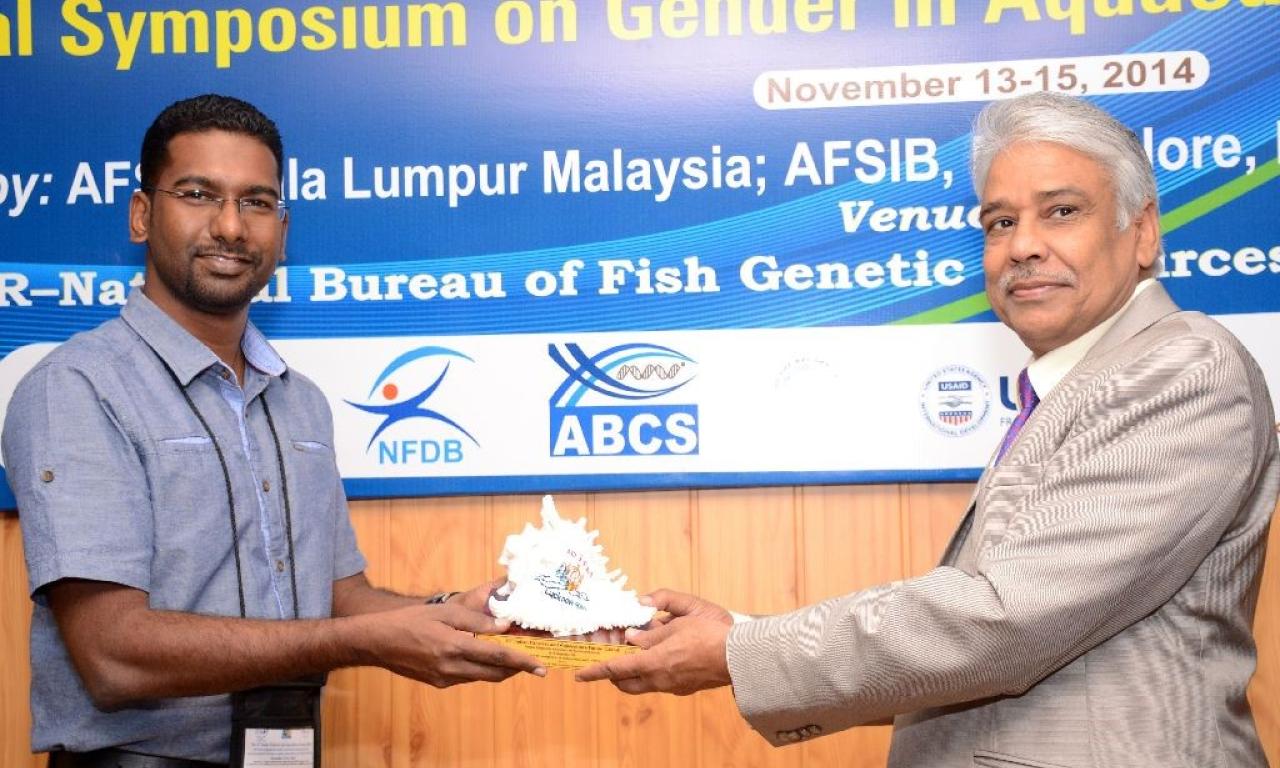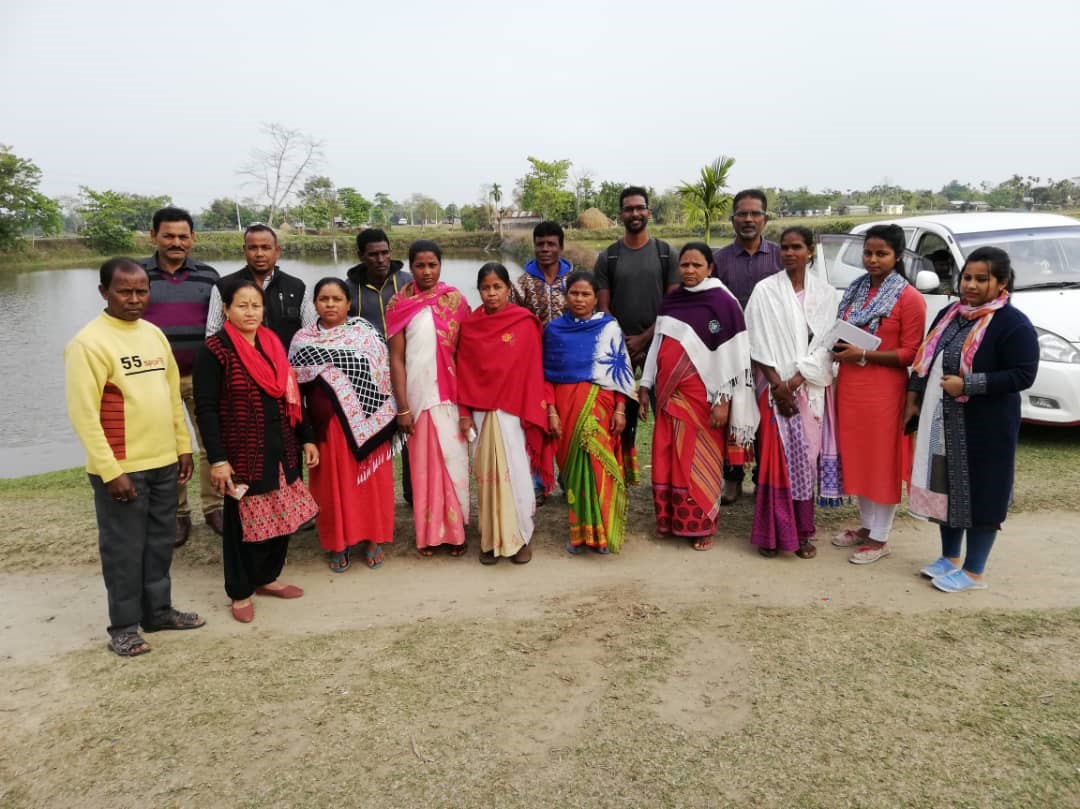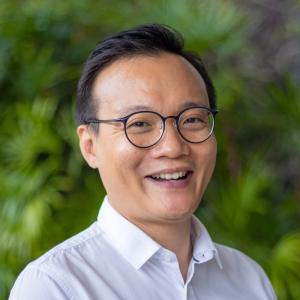
- WorldFish researcher Surendran Rajaratnam explains how his work can improve gender equality in aquatic food systems
- He is proudest to be part of the team that is developing the Women’s Empowerment in Fisheries Index (pro-WEFI) tool to measure the effectiveness of gender transformative approaches (GTA)
WorldFish and the CGIAR Research Program on Fish Agri-Food Systems (FISH) are global leaders in aquatic food systems research and innovation for healthy people and planet, and science and partnerships are the foundation of our work. Our team delivers robust evidence to policymakers and technological innovations to producers, supply chain actors and consumers in order to transform food systems. In this series, we profile our accomplished scientists in the spotlight.
Surendran Rajaratnam is a post-doctoral fellow at WorldFish, where he has worked since 2013. He obtained his master’s degree and doctorate from Universiti Sains Malaysia. Rajaratnam is an executive committee member and the digital newsletter editor of the Gender in Aquaculture and Fisheries Section of the Asian Fisheries Society. He has been involved with this section since 2014.
At WorldFish, Rajaratnam conducts a range of gender studies in Asia and Africa. Among the initial studies that he has conducted with WorldFish was a social and gender study in the Barotse floodplain, Western Province of Zambia. Rajaratnam also worked on CGIAR’s GENNOVATE study which explored gender in aquatic agricultural innovation processes in Bangladesh and the Philippines. He was also part of a joint project between WorldFish and FAO that conducted a series of case studies in Bangladesh and Indonesia on women’s empowerment in aquatic food systems.
Rajaratnam’s current research interest is in the mixed-methods approach to studying gender in aquatic food systems. He has also undertaken gender studies in India, Bangladesh, Myanmar and Egypt.
What are you currently working on for WorldFish?
I am currently working on several studies for WorldFish. They include a systematic literature review and a policy analysis on women’s self-help groups in aquatic food systems in India, a study to investigate the COVID-19 pandemic and its impact on women’s agribusiness in Myanmar using a feminist perspective and cognitively testing the Women’s Empowerment in Fisheries Index (pro-WEFI) tool.
The pro-WEFI tool was inspired by the Women’s Empowerment in Agriculture Index (WEAI) developed by the International Food Policy Research Institute (IFPRI). FISH adapted WEAI to work with gender transformative approaches (GTA) by including mixed methods, enabling before and after measure of change, incorporating measurements of change in gender attitudes, and assessing “power within” as a dimension of empowerment.
What's the most exciting part about gender research?
Gender research provides an understanding of the social differences that exist across different gender groups – and these differences have common patterns across various contexts we work in.
Learning about these differences is exciting because I am able to unravel and bring them to light – to ensure that any interventions with these groups of people will take their gender into consideration.
What's your favorite part about the research process and why?
My favorite part about the research process is the data collection - when we get to meet and interact with the people in the communities involved in our program.
As a qualitative researcher, most of my studies involve interviewing and conducting focus group discussions. Listening to people speak and understanding their views and perspectives is always exciting because there is always something new we learn about them and their lives.

What's your most memorable experience working with communities to improve gender equality?
I had many memorable experiences researching rural communities but an experience in Assam, India stood out from the rest. There was this community with a group of women fish farmers who led their respective fish farming businesses while their husbands worked alongside them to ensure that the businesses were running well.
This group of women can be considered an outlier as women in other communities in India face various barriers to being involved in aquatic food systems.
What innovation do you think has the most significant potential to improve gender equality in aquatic food systems?
I believe that GTA has the most significant potential to improve gender equality in the aquatic food systems if it is given adequate resources, including time, and is well implemented by gender experts.
GTA is one of the innovations for gender equality highlighted by CGIAR at 50. It is an innovation that we at WorldFish and our partners spearheaded in terms of conceptualization, testing and scaling within the CGIAR and in aquatic food systems.
What piece of scientific research have you conducted in the past 12 months are you proudest of and why?
I am proud of all of the research I have worked on and the ones which I am currently working on in WorldFish. One that I can share is being part of the team that is developing pro-WEFI, a tool to measure women’s empowerment in aquatic food systems.
I am proud of the work because it is a tool that can be used to measure empowerment, agency and inclusion of women in the fisheries and aquaculture sectors to identify ways to overcome challenges and constraints faced by women and men in the sector.
What do you hope your research ultimately achieves?
I hope that my research will add value to the current body of knowledge on gender in aquatic food systems. I also hope that it informs future research and intervention in the area of work.
Surendran Rajaratnam’s work contributes to the goals of the CGIAR Research Program on Fish Agri-Food Systems (FISH) under its key cross-cutting theme on Gender.
